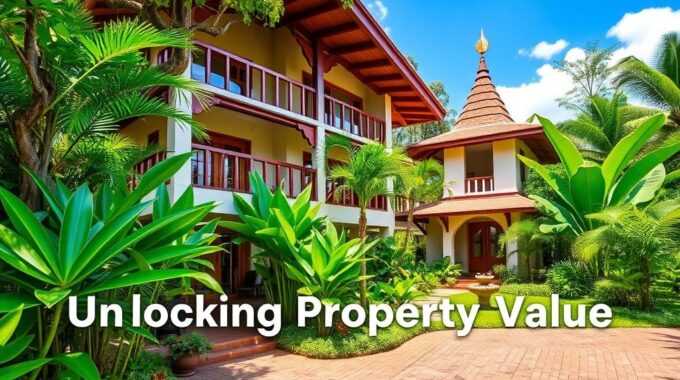GAP Investments provides tailored financing solutions for investors in Costa Rica, understanding the unique needs…

Legal Protections for Hard Money Lenders in Costa Rica
Did you know that Costa Rica’s real estate market has grown by 12% annually since 2020? This growth has created a surge in demand for flexible financing options. Tailored solutions like hard money loans are becoming a popular choice for investors seeking quick funding and competitive rates.
GAP Investments specializes in providing secure and efficient financing for private investors. Their collateral-based approach ensures fast approval and flexible terms, ranging from six months to three years. This makes it ideal for projects requiring immediate capital.
For foreign and expat investors, tailored financing options offer a reliable way to navigate the local market. With GAP Investments, safety and risk management are prioritized, ensuring a smooth lending experience. This article will explore how these strategies benefit investors in Costa Rica.
Understanding Hard Money Lending in Costa Rica
Investors in Costa Rica are increasingly turning to alternative financing methods. These solutions, such as hard money loans, offer flexibility and speed that traditional banks often cannot match. This approach is particularly appealing in a dynamic real estate market where quick decisions can make all the difference.
What Sets Hard Money Loans Apart
Hard money loans differ significantly from traditional bank financing. Instead of focusing on credit scores, lenders prioritize the property value. This collateral-based approach allows for faster approvals and more flexible terms. Borrowers can secure funds in days, not weeks, making it ideal for time-sensitive projects.
Another key advantage is the competitive interest rate. While slightly higher than bank rates, the speed and convenience often outweigh the cost. This makes hard money loans a practical choice for investors looking to capitalize on opportunities in Costa Rica’s real estate market.
Key Features of Collateral-Based Financing
Collateral-based financing relies on the equity in the property being used as security. This reduces risk for lenders and provides borrowers with access to funds based on the property value. Loan-to-value ratios are carefully calculated to ensure both parties are protected.
Quick funding turnarounds are another standout feature. Investors can secure the capital they need without the lengthy approval processes typical of traditional banks. This efficiency is crucial in a competitive market where timing is everything.
With flexible terms ranging from six months to three years, hard money loans cater to a variety of investment needs. Whether it’s a short-term renovation or a long-term development project, this financing option offers the adaptability investors require.
Legal Protections for Hard Money Lenders Costa Rica
Costa Rica’s financial system ensures a secure environment for alternative financing. The country’s regulatory framework, led by SUGEF, provides clear guidelines for lenders and borrowers. This structure minimizes risks and fosters trust in the lending process.
Regulatory Safeguards and SUGEF Compliance
SUGEF oversees financial institutions, ensuring they operate within legal parameters. Lenders must register with SUGEF and provide essential documentation. This includes proof of property ownership and detailed financial statements.
Compliance with SUGEF regulations is mandatory. Non-compliance can result in fines or loss of licenses. This oversight helps maintain the integrity of Costa Rica’s financial system.
On-site property evaluations and financial checks are critical steps. These measures ensure the property’s value aligns with the loan amount. This reduces risks for both lenders and borrowers.
Adhering to local laws builds investor confidence. The legal framework protects all parties involved. This makes Costa Rica an attractive destination for property-based financing.
GAP Investments: A Trusted Financing Partner in Costa Rica
GAP Investments has become a go-to financing partner for investors in Costa Rica. With over 15 years of experience, they specialize in providing tailored solutions that meet diverse investment needs. Their focus on efficiency and transparency has made them a trusted name in the industry.
Tailored Loan Options and Competitive Interest Rates
GAP Investments offers a wide range of loan options, catering to both local and international investors. Loan amounts start at $50,000 and can go up to $3,000,000, making it suitable for various projects. Whether it’s a short-term renovation or a long-term development, they provide flexible terms to match the borrower’s needs.
Their competitive interest rates, ranging from 12% to 18%, are designed to attract investors seeking cost-effective financing. These rates are often more favorable than traditional bank options, especially for those requiring quick approvals.
Streamlined Application Process and Fast Funding
One of the standout features of GAP Investments is their streamlined application process. Borrowers can expect approvals within 7 to 10 business days, significantly faster than traditional banks. This efficiency is crucial for investors looking to capitalize on time-sensitive opportunities.
Their commitment to transparency ensures that every step of the process is clear and straightforward. From initial application to final funding, GAP Investments prioritizes the borrower’s experience, making it a reliable choice for financing in Costa Rica.
- Loan amounts from $50,000 to $3,000,000.
- Interest rates between 12% and 18%.
- Approval times of 7 to 10 business days.
- Flexible terms tailored to individual needs.
Loan Structure, Terms, and Interest Rate Insights
The structure of hard money loans offers unique advantages for investors in dynamic markets. These loans are designed to provide flexibility, speed, and competitive rates, making them a popular choice for real estate projects. Understanding the key components of these loans can help investors make informed decisions.
Flexible Loan Amounts and Repayment Terms
Hard money loans are known for their adaptability. Loan amounts typically range from $50,000 to $3,000,000, catering to various project sizes. This flexibility allows investors to secure the exact funding they need without unnecessary constraints.
Repayment terms are equally versatile, spanning from six months to three years. Short-term loans are ideal for quick renovations, while longer terms suit extensive developments. This adaptability ensures that investors can align their financing with project timelines.
Understanding Loan-to-Value Ratios
Loan-to-value (LTV) ratios play a critical role in securing hard money loans. Lenders typically offer up to 50% of the property’s value, ensuring a balanced risk for both parties. This approach prioritizes the property’s equity over the borrower’s credit history.
Accurate property valuation is essential in this process. It ensures that the loan amount aligns with the property’s market value, reducing risks for lenders and providing fair terms for borrowers.
Interest Rate Factors and Competitive Edge
Interest rates for hard money loans range from 12% to 18% annually. While slightly higher than traditional bank rates, the speed and convenience of these loans often outweigh the cost. Factors like property type, location, and loan duration influence the final rate.
Competitive rates make hard money loans an attractive option for investors. They provide quick access to capital, enabling investors to seize opportunities in the real estate market without delays.
- Loan amounts from $50,000 to $3,000,000.
- Repayment terms from six months to three years.
- Loan-to-value ratios up to 50% of property value.
- Interest rates between 12% and 18% annually.
Risk Management Strategies and Due Diligence
Effective risk management is crucial for successful private lending, especially in dynamic markets. Lenders must carefully evaluate borrowers and properties to minimize potential risks. This ensures a secure and profitable lending process for all parties involved.
Assessment of Borrower and Property Value
Thorough evaluation of borrower credentials is a key step in risk management. Lenders analyze financial records, credit history, and repayment capacity. This helps determine the borrower’s ability to meet loan obligations.
Property value assessment is equally important. Detailed inspections and appraisals ensure the collateral aligns with the loan amount. Accurate valuations reduce risks and protect the lender’s equity.
Mitigating Investment Risks with Detailed Checks
Detailed due diligence is essential for minimizing risks in private lending. This includes verifying financial statements, assessing loan-to-value ratios, and conducting background checks. These steps provide a clear picture of the borrower’s financial health.
Maintaining high credit standards is critical, even in collateral-driven lending. This ensures that borrowers meet specific criteria, reducing the likelihood of defaults. Such practices build trust and confidence in the lending process.
Best practices include:
- Conducting on-site property inspections.
- Reviewing financial records for accuracy.
- Evaluating loan-to-value ratios to balance risk.
- Ensuring compliance with regulatory standards.
By implementing these strategies, lenders can safeguard their investments while offering flexible and reliable financing solutions.
Legal Framework and Regulatory Requirements in Costa Rica
Navigating the legal framework for private lending in Costa Rica requires specific documentation. The country’s financial system, overseen by SUGEF, ensures transparency and security for all parties involved. This structure minimizes risks and fosters trust in the lending process.

Essential Documentation and Legal Compliance
To secure a private loan, borrowers must provide proof of property ownership and detailed financial statements. Lenders evaluate the property’s value to determine the loan-to-value ratio, ensuring a balanced risk. This process is critical for both parties.
SUGEF mandates that all financial transactions comply with local regulations. Non-compliance can result in fines or loss of licenses. This oversight helps maintain the integrity of the financial system.
Digital signatures, known as Firma Digital, streamline the approval process. They are legally binding and ensure secure transactions. Borrowers can complete paperwork efficiently, reducing delays.
Local banks play a key role in facilitating these loans. They ensure that all transactions meet regulatory standards. This collaboration between private lenders and banks enhances the credibility of the lending process.
- Proof of property ownership and financial statements are required.
- Loan-to-value ratios are carefully calculated to balance risk.
- Digital signatures expedite the approval process.
- Local banks ensure compliance with regulatory standards.
Adhering to these rules protects both lenders and borrowers. It ensures that all transactions are transparent and secure. This legal framework makes Costa Rica an attractive destination for private lending.
Investment Opportunities and Market Analysis
Costa Rica’s real estate sector is thriving, offering investors a wealth of opportunities. The country’s stable economy and growing tourism industry make it a prime destination for property investments. With annual returns ranging from 12% to 18%, it’s no wonder investors are flocking to this Central American gem.
Growth Trends in Costa Rica’s Real Estate Sector
The real estate market in Costa Rica is experiencing steady growth, driven by a robust tourism sector and favorable government policies. Over the past decade, property values have risen significantly, especially in areas near tourist hotspots. This trend is expected to continue as the country attracts more international visitors and investors.
Economic stability plays a key role in this growth. With over 50 years of democratic rule and a commitment to clean energy, Costa Rica offers a secure environment for investments. The growing middle class and increasing demand for rental properties further contribute to the market’s expansion.
Maximizing Returns in a Stable Economy
Private lending has emerged as a superior choice for investors seeking higher returns compared to traditional bank loans. With loan amounts ranging from $50,000 to $3,000,000 and flexible terms, private lenders like GAP Investments provide tailored solutions for diverse projects.
Quick approval processes, often completed in 7 to 10 business days, give investors a competitive edge. This efficiency allows them to capitalize on time-sensitive opportunities in the real estate market. Additionally, competitive interest rates and favorable loan-to-value ratios make private lending an attractive option.
Future projections indicate continued growth in Costa Rica’s real estate sector. Investors can expect lucrative opportunities in vacation rentals, residential properties, and eco-friendly developments. By leveraging private lending, they can maximize returns while contributing to the country’s sustainable development goals.
Conclusion
Investing in real estate requires both strategy and reliable financing solutions. GAP Investments offers a secure and efficient way to access tailored loan options, ensuring investors can capitalize on opportunities quickly. With approval times as fast as 7 to 10 business days, their streamlined application process stands out in the market.
Flexible loan structures and competitive interest rates make GAP Investments a trusted partner. Loan amounts range from $50,000 to $3,000,000, catering to diverse project needs. This adaptability, combined with loan terms from six months to three years, provides investors with the tools to succeed.
The real estate market’s growth potential further enhances the benefit of working with GAP Investments. By adhering to strict risk management practices, they ensure a secure investment environment. For those seeking a reliable financing partner, GAP Investments is the ideal choice.


